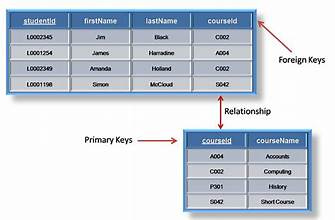Why should we forbid Foreign Key(FK) constraints?
Foreign Key (FK) constraints are useful for maintaining referential integrity between tables in relational databases.
However, there are situations where it may be beneficial or even necessary to forbid FK constraints. Here are the reasons why developers or organizations might avoid using them:
1. Performance Concerns
Write Overhead:
FK constraints require the database to validate relationships between tables on every
INSERT,UPDATE, orDELETE. This can add significant overhead to write operations, especially in high-throughput systems.
Locking Issues:
FK constraints can introduce locking on parent and child tables during updates or deletions, which can reduce concurrency in systems with high transaction volumes.
Query Optimization:
FK constraints can restrict the database's query optimizer, potentially leading to suboptimal execution plans.
2. Scalability in Distributed Systems
Database Sharding:
In distributed systems or databases with sharding, FK constraints become challenging to enforce because related data might reside in different shards or nodes.
Verifying FK constraints across shards involves network calls, increasing latency and complexity.
Replication Lag:
In multi-master or replica-based setups, FK constraints can lead to inconsistencies if one node updates the parent while another updates the child.
3. Application-Level Responsibility
Many modern systems prefer to handle referential integrity in the application logic rather than relying on the database.
Advantages:
Greater flexibility in defining custom business logic for data relationships.
Easier to implement cross-database or cross-service relationships, which are common in microservices and event-driven architectures.
Example:
Instead of relying on the database to enforce constraints, the application checks for the existence of a parent record before performing operations on the child.
4. Schema Evolution Challenges
Schema Migrations:
FK constraints can make schema changes (e.g., splitting tables, renaming columns) more complex and error-prone.
Dropping or altering constraints in production systems with large datasets often requires downtime or complex migration strategies.
5. Potential for Cascading Issues
FK constraints allow cascading deletes or updates, where a change in the parent table automatically propagates to the child table. While useful, this can also lead to:
Unintended Data Loss: Cascading deletes can accidentally delete critical data in child tables if not carefully designed.
Complex Debugging: Cascading updates/deletes can create chain reactions that are difficult to track and debug.
6. Compatibility with NoSQL and Modern Architectures
NoSQL Databases:
Most NoSQL databases (e.g., MongoDB, Cassandra) do not support FK constraints because their design philosophy favors denormalization and eventual consistency over strict relational integrity.
Microservices:
In microservices architectures, each service manages its own database, and enforcing FK constraints across databases is not feasible. Instead, systems use events, API calls, or eventual consistency mechanisms to ensure integrity.
7. Simplification for Developers
Removing FK constraints simplifies development for large teams:
No need to understand or deal with complex relationships between tables.
Easier onboarding for new developers since they don’t need to grasp intricate FK setups.
8. Historical and Legacy Reasons
Legacy Systems:
Some legacy systems or frameworks may not support FK constraints effectively or at all.
Incompatible Tools:
Some database tools and ORMs (Object-Relational Mappers) may not work well with FK constraints, causing issues during development or runtime.
Trade-Offs of Forbidding Foreign Keys
While forbidding FK constraints offers benefits, it comes with trade-offs:
Increased Complexity in Application Logic:
The application must take on the responsibility of enforcing referential integrity.
Risk of Data Inconsistencies:
Without FK constraints, developers must be cautious to avoid orphaned records or invalid references.
Loss of Automatic Cleanup:
Cascading deletes and updates need to be manually implemented if required.
When to Forbid FK Constraints?
High-Performance Applications: Systems with high write or transaction volumes, such as real-time analytics or order-processing systems.
Distributed or Sharded Databases: Databases spread across multiple nodes or shards where enforcing FK constraints is inefficient or impractical.
Microservices Architectures: Systems that decentralize data management across independent services.
Schema-Heavy Applications: Applications that frequently evolve their database schema.
NoSQL or Polyglot Persistence: Systems using NoSQL databases or combining relational and non-relational databases.
Alternatives to Foreign Key Constraints
Application-Level Integrity Checks:
Ensure the existence of related records in code before performing database operations.
Soft Deletes:
Instead of physically deleting a parent record, mark it as inactive and filter out inactive records in queries to avoid breaking relationships.
Batch Cleanup Jobs:
Use scheduled scripts to identify and clean up orphaned records periodically.
Indexes on Relationship Columns:
Create indexes on columns used for relationships to speed up lookups and enforce uniqueness.
Event-Driven Architectures:
Use events (e.g., Kafka, RabbitMQ) to notify services of changes to parent records, enabling downstream systems to maintain consistency.
Conclusion
While FK constraints are useful for ensuring referential integrity in small-scale, centralized applications, they can become a liability in high-performance, distributed, or modern application architectures. Forbidding FK constraints allows greater flexibility, scalability, and performance at the cost of shifting the responsibility for maintaining data integrity to the application layer or external processes. This trade-off should be carefully evaluated based on the specific requirements of your system.
Image Source :-wikipedia


